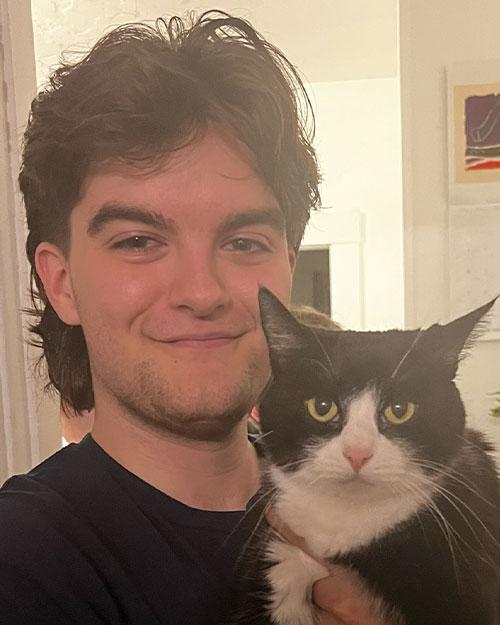Instructor Spotlight: Charlie Dineen

Tell us about yourself and what inspired you to teach this course
I’ve always loved post-apocalyptic and dystopian media. (I probably started watching The Walking Dead a little too early, but don’t blame my parents! I was watching it secretly with my older brother.) The Hunger Games was probably my “first love” in terms of post-apocalypse novels; I read each book as it came out, and I’ve read them all literally dozens of times. As I got older and more interested in video games and movies, I started noticing that I really enjoyed thinking about how and why characters were making decisions. I’d turn them over in my head, trying to make sense of all the different options and angles. As a religion major who “moonlights” as a philosophy student, I learned a lot about ethical theory and started applying the things I was learning in class to the decisions being made in my favorite media. I think post-apocalypse media presents ethical decisions in “extremes”: extreme circumstances, extreme violence, extreme injustice, etc. These extremes can be useful in teasing apart how we think about ethics because they make ethical decisions so dramatic, tangible, and engaging.
A lot of post-apocalypse media takes cues from our current world (ie. pandemics, climate change, etc.). What can this media teach us about the real world and our current ethical dilemmas and decisions?
We’ve been reading Parable of the Talents by Octavia Butler, and I think it’s been eye-opening for my students to read something that so accurately predicted current events: climate catastrophe, the rise of religious nationalism, and even the slogan “make America great again.” Several of my students couldn’t believe that the book was written in the 90s! It makes the book difficult to read at times, but at the same time it gives readers a great insight into the fact that people have been thinking about issues that we deal with every day for a very long time. It gives us as a class a great opportunity to talk about how characters deal with challenges like resource scarcity, structural injustice, and violence, and hopefully students are taking advantage of these discussions to think about how they deal with the same issues outside of class. It’s also valuable for students to read about characters with different experiences and identities to broaden their understanding of different issues, and it’s equally valuable for them to see themselves in the characters we root for.
What’s your favorite piece of post-apocalypse media?
I don’t know if I can pick just one. The Hunger Games got me into the genre, and The Last of Us video game series definitely inspired me to teach this class. But at the same time, there’s just so much post-apocalyptic media out there! Ask me again tomorrow, and I’ll have a different answer.
What do you hope students will take away from your course?
I think the most important thing I want students to take away is that ethics and ethical decision making are not just abstract theories for philosophy majors! We all “do ethics” all the time, and being aware of this and getting insight into how we make these decisions makes us all better at recognizing justice and injustice.
What is something you are looking forward to in your course as we wrap up the semester?
I’m really looking forward to my students’ research papers! They’re all writing about an area of personal interest, so I’m excited to read about their passions. I’m also excited to talk about The Last of Us, especially since we’ve mostly been reading novels so far and I think the change in media format will be fun.
Charlie Dineen (he/they) is a religion major and senior at Tufts. He is from Marion, Massachusetts and they work at Tisch Library in the resource sharing department. In his free time, he loves playing D&D with their friends, supporting the local drag scene, and reading.